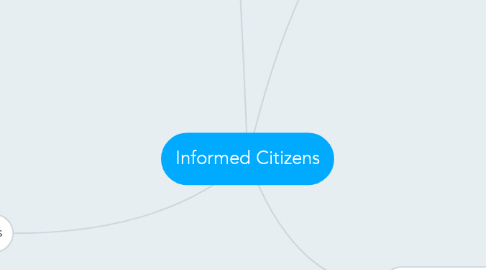
1. Debates
1.1. Topic
1.2. Research
1.2.1. Tools
1.2.1.1. Books
1.2.1.2. Computer Lab
1.2.1.3. Internet
1.2.1.4. News
1.2.1.5. Opinion Articles
1.2.2. Consideration
1.2.2.1. Bias
1.2.2.2. Source validity
1.3. Note-taking
1.3.1. Relevancy
1.3.2. Important
1.3.3. Length of notes
1.4. Preparation
1.4.1. Crafting Argument
1.4.1.1. Main Points
1.4.1.1.1. Supporting Points
1.4.1.1.2. 3 details to support
1.4.1.2. Collaboration
1.4.1.2.1. Group ideas
1.4.1.2.2. Synthesize
1.4.2. Crafting Rebuttal
1.4.2.1. Respond to points
1.4.2.2. Supporting Evidence
1.5. Presentation
1.5.1. Presenting Argument
1.5.1.1. Speaker
1.5.1.2. Tone of Voice
1.5.1.3. Clarity
1.5.1.4. Charisma
1.5.2. Presenting Rebuttal
1.6. Conclusion
1.6.1. Presentation
1.6.1.1. Powerful argumentative technique
1.6.1.2. Succinct
1.6.1.3. Most important Information
1.6.2. Decision
1.6.2.1. Voting
1.6.2.2. How to decide which side won
2. Elections
2.1. Election Issues
2.1.1. Controversial
2.1.2. Taking a stance
2.2. Political Parties
2.2.1. Democrat
2.2.2. Republican
2.2.3. Independent
2.3. Interest Groups
2.3.1. Influence
2.3.2. Money
2.4. Level of elections
2.4.1. State
2.4.2. Local
2.4.3. National
3. Ways Citizens Stay Informed
3.1. Newspapers
3.2. Magazines
3.3. TV News
3.4. Opinion Articles
3.5. Word of Mouth
3.5.1. Comminuties
3.5.2. Bias
4. Voting
4.1. Who can vote?
4.1.1. Age
4.1.2. Status
4.2. How do votes count?
4.2.1. Representative
4.2.2. Direct
4.2.3. Electoral
4.3. How do we choose which candidate to vote for?
4.3.1. Considerations
4.3.1.1. political
4.3.1.2. economic
4.3.1.3. moral
4.3.2. Influences
4.3.2.1. Advertisements
4.3.2.2. Campaigning
4.3.2.3. Literature
4.3.2.4. Information
